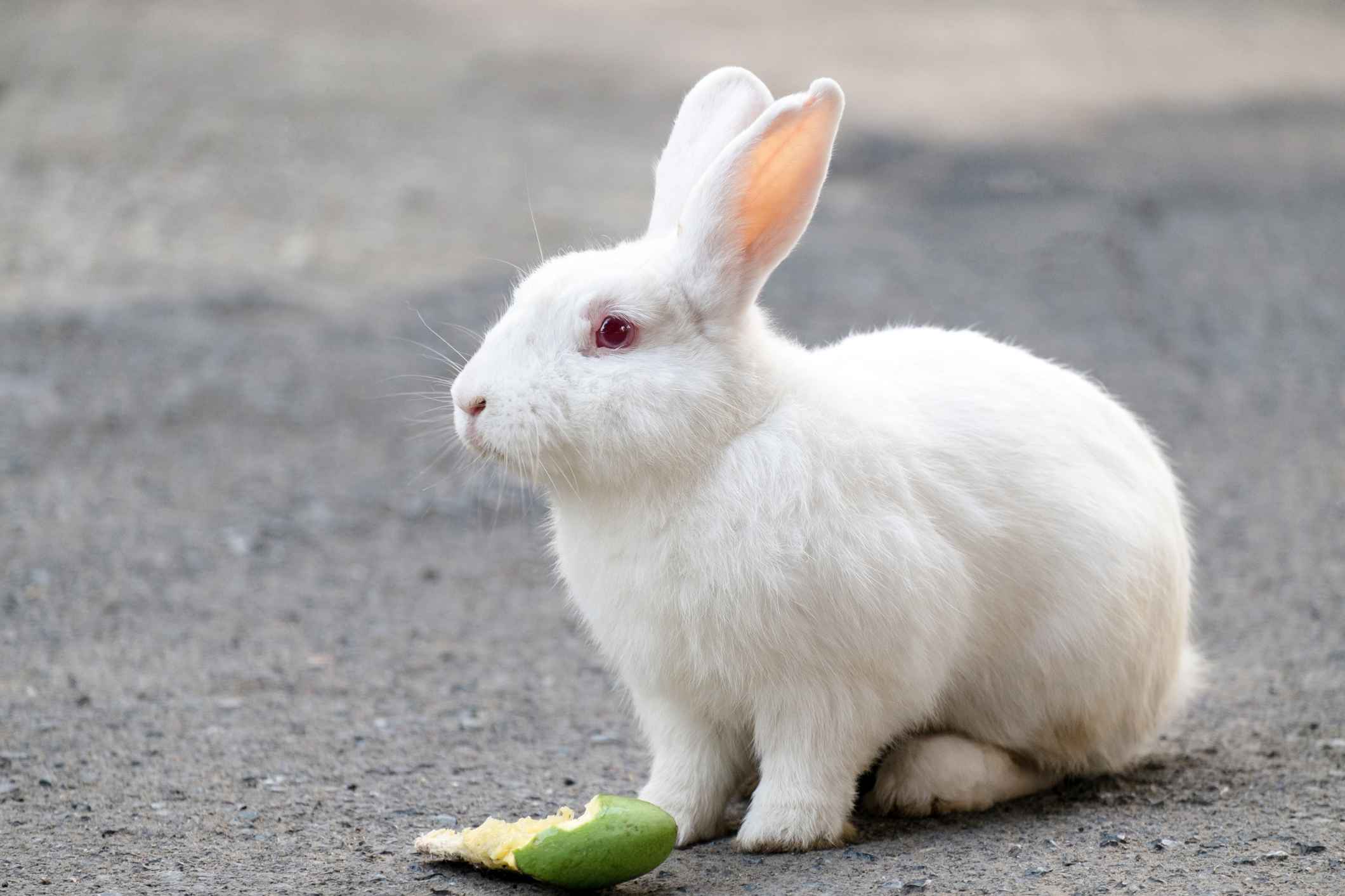Welcome to the fascinating world of rabbits and their dietary preferences, where we’re about to explore an interesting question, Can rabbits eat lemon? Rabbits are those adorable, fluffy creatures we all love, and they usually enjoy eating green and fibrous foods.
But have you ever wondered if rabbits might also be interested in the tangy and sour taste of lemons? While rabbits typically prefer leafy greens and veggies, the idea of them munching on lemons adds an exciting twist to their eating habits. Let’s dive into this citrusy topic together and find out if rabbits and lemons make a compatible pair in the world of food.
Can Rabbits Eat Lemon?

No, rabbits should not eat lemons. While rabbits enjoy a diet primarily composed of hay, fresh vegetables, and leafy greens, lemons are not suitable for them. Lemons are very acidic, and the high levels of citric acid can upset a rabbit’s sensitive digestive system, leading to potential discomfort or health issues. It’s best to stick to foods that are safe and appropriate for rabbits to ensure their well-being and health.
Can Rabbits Eat Lemon Pale?
No, rabbits should not eat lemon peel either. Lemon peels, like the flesh of the fruit, are also highly acidic and can cause digestive upset, oral irritation, and potential health issues in rabbits. It’s important to avoid feeding any part of the lemon, including the peel, to your rabbit to ensure their well-being and prevent any adverse reactions. Stick to rabbit-safe foods like hay, fresh vegetables, and leafy greens to provide a balanced and suitable diet for your furry friend.
What to do if Rabbits Eat Lemon Accidentally?

If your rabbit accidentally consumes a small amount of lemon, it’s important to monitor their behavior and health closely. Here’s what you can do:
Observe:
Keep a close eye on your rabbit for any signs of discomfort, digestive issues, or changes in behavior. Look out for symptoms like bloating, diarrhea, lethargy, or refusing to eat.
Hydration:
Ensure your rabbit has access to fresh water at all times. Lemon’s acidity could potentially make your rabbit thirstier, so it’s important to keep them well-hydrated.
Remove Lemon:
If you know your rabbit has ingested lemon recently, try to remove any remaining traces of lemon or lemon peel from their environment to prevent further accidental consumption.
Contact a Veterinarian:
If you notice any unusual behavior or signs of distress in your rabbit, contact a veterinarian experienced in treating rabbits. They can provide advice tailored to your rabbit’s specific situation.
Feed Regular Diet:
Stick to your rabbit’s regular diet of hay, fresh vegetables, and leafy greens. Avoid introducing any new foods or treats during this time, as you want to help their digestive system return to its normal state.
Monitor Regularly:
Continue to monitor your rabbit’s health and behavior over the next 24-48 hours. If any symptoms worsen or if you’re unsure about their condition, don’t hesitate to consult with a veterinarian.
Are Lemons Toxic to Rabbits?

Yes, lemons are considered toxic to rabbits. The high levels of citric acid and acidity in lemons can cause digestive upset and other health issues for rabbits. Feeding them lemons or any part of the lemon, including the flesh and peel, is not recommended. Rabbits have sensitive digestive systems that are adapted for a specific type of diet, primarily consisting of hay, fresh vegetables, and leafy greens.
Lemons can disrupt the delicate balance of a rabbit’s gut, potentially leading to stomach discomfort, bloating, diarrhea, and even more serious health problems over time. It’s crucial to avoid giving your rabbit lemons or any other foods that are not specifically approved as safe for their consumption. Always prioritize your rabbit’s health and well-being by providing a diet that meets their nutritional needs without introducing potential hazards.
Some Health Risks if Rabbits Eat Lemon:
Feeding lemons to rabbits can pose several health risks which we are discussing below due to their highly acidic nature:
Digestive Upset:
Rabbits have delicate digestive systems that are adapted for breaking down fibrous plant material. The high acidity of lemons can disrupt the balance of their gut, potentially leading to stomach discomfort, bloating, and diarrhea.
Oral Irritation:
The acidity of lemons can also cause irritation to a rabbit’s mouth and sensitive oral tissues. This discomfort can affect their ability to eat and groom properly.
Calcium Imbalance:
Lemons contain a small amount of calcium, but rabbits require a specific balance of nutrients in their diet. Feeding them foods with inappropriate calcium levels, like lemons, can lead to health issues such as kidney problems and bladder stones.
Limited Nutritional Value:
Lemons lack the essential nutrients that rabbits need to thrive. A rabbit’s diet should consist of high-fiber foods, which lemons do not provide.
Negative Behavioral Changes:
Introducing unfamiliar or acidic foods like lemons can lead to stress and changes in a rabbit’s eating behavior. It’s important to maintain a consistent and rabbit-friendly diet to ensure their well-being.
What Rabbits should eat if not Lemons?
Rabbits have specific dietary requirements that are important for their health and well-being. Here’s a list of foods that rabbits can safely eat:
Hay: High-quality hay, such as timothy, grass, or alfalfa hay (for young rabbits), should make up the majority of a rabbit’s diet. Hay provides essential fiber for healthy digestion and helps maintain dental health.
Fresh Vegetables:
Offer a variety of fresh, rabbit-safe vegetables daily. Some good options include leafy greens like romaine lettuce, kale, spinach, and herbs like parsley and cilantro.
Pellets:
Choose high-fiber rabbit pellets that are specifically formulated for rabbits. Pellets should only make up a small portion of their diet and should be fed in moderation.
Water:
Fresh, clean water should always be available for your rabbit to drink.
Limited Fruit:
Some fruits can be given as occasional treats due to their sugar content. Safe options include small amounts of apple slices, pears, and berries like strawberries and blueberries. However, fruits should be given sparingly.
Safe Herbs:
Certain herbs can be offered in moderation, such as mint, basil, and dill. These can provide variety and some additional nutrients.
It’s important to introduce new foods gradually and in small quantities to avoid upsetting your rabbit’s digestive system. Always wash and properly prepare foods before offering them to your rabbit. If you’re unsure about a particular food, consult with a veterinarian experienced in rabbit care to ensure it’s safe for your furry friend.
Remember that a rabbit’s diet should be primarily composed of hay, with fresh vegetables and other foods used as supplements to create a balanced and nutritious diet.

